- Home
- Melina Marchetta
Saving Francesca Page 2
Saving Francesca Read online
Page 2
Oh, Tara.
No one turns up, of course. Tara Finke sees it as a success because Justine Kalinsky and I are there, and I want to point out to Tara that we haven’t exactly “turned up.” It’s called having nowhere else to go. But Tara is in denial and she gets Justine Kalinsky to take the minutes. Justine makes a list of our names and then a list of all those absent, as if they’ve sent their apologies, and that takes up half our lunchtime.
“Suggestions?” Tara Finke asks.
“The most logical and persuasive one of us should go and see one of the House coordinators,” Justine says, scribbling down a list of names under the heading “L and P,” obviously for “logical and persuasive.” “Someone who can argue our case with passion and sensitivity.”
A Year Ten boy walks by and clutches his crotch.
“Don’t these people realize that their bourgeois mentality is a manifestation of two thousand years of patriarchal crap?” Tara Finke snaps, giving him the finger.
I watch Justine discreetly cross Tara Finke’s name off the “L and P” list.
We have a House meeting during period four. I’m in Kelly, which is named after a dead Brother who took in thirty boys off the streets of Sydney in the 1800s and then died of diphtheria.
The school doesn’t have a school captain. It has six House leaders in Year Twelve, and ours is William Trombal. He’s the shirt-rolled-up -to-his-elbow, no-nonsense type. He always has a frown on his face and looks slightly harassed and I think the girls-being-at-his-school thing doesn’t impress him in the slightest. He’s in charge of sports reports each week, and having to stand through such detail, spoken with such reverence, makes me want to yell, “It’s just a ball game, for crying out loud.”
My grandmother knows William Trombal’s grandmother, which I think makes him half Italian. She claims that William Trombal’s grandmother stole her S biscuit recipe and she dislikes her with a passion, although they pray together in the same Rosary group each week. Not that William Trombal and I have ever acknowledged this connection.
Tara Finke nudges me. “Fascism at its best here. They train them young.”
I ignore her. My theory is to lay low, and my reluctance to get involved has nothing to do with fear or shyness, contrary to popular perception. I have this belief that people hate change and, more than anything, they hate those who try to change things. I might not be interested in being in the most popular group in the world, but I’m less interested in being an outcast. Anyway, my being political would make Mia happy and I wouldn’t want that. She thinks she knows who I am because she thinks who I am is who she tells me I am.
“God they love the sound of their own voices,” Tara Finke mutters.
And you don’t?
Suddenly, I feel everyone’s gaze on us. I look up and William Trombal is glaring, his dark eyes slicing straight through me.
“Do you have a question?” he asks, totally ignoring Tara and looking straight at me.
Tara Finke is scribbling something down on the lunchtime list of complaints. She passes it to me and I skim the list. At the bottom she’s written, Ask him where he got the pole up his ass from.
The whole House is looking our way. I spot Luca, who gives me a sympathetic smile.
“We were just wondering . . . ,” Tara Finke begins.
I can’t believe she’s going to make things worse. I look at the coat of arms behind William Trombal’s head, which is full of Latin pretension.
“. . . if the P stands for pace . . . peace. . . ,” I finish off for her. I feel her glaring at me, but it is not as bad as the smug, condescending look on William Trombal’s face.
“You’re saying it in Italian,” he says, like he’s speaking to a moron. “In Latin it’s pax.” Then he deliberately turns around to look at the coat of arms and then looks back at me. “And there’s no P there, anyway. It’s a V. For veritas. ‘Truth.’ ” He pauses for emphasis after each word. “But I can understand how the V/P thing could confuse you.”
“Ripped,” Thomas Mackee behind me snickers, suggesting that William Trombal has well and truly won the point in this exchange.
When the meeting is over, Ms. Quinn, our House dean, is standing there in front of me. She holds out her hand and I realize I still have Tara’s note.
“Can you come to my office?”
I sit in front of Ms. Quinn, watching as she reads the list. Most of the time she looks highly strung or half-bemused. She’s pretty tough and doesn’t give an inch, but I think that’s how she has to be. My mother began her teaching career in a boys’ school, and she said that every day was like going to war and every day she’d come home with battle fatigue. Ms. Quinn is youngish, but not teenage-boy lust material. I think they like her, but they still call her a bitch behind her back. She’s spoken to me once or twice about some screw-ups on my timetable, but that’s as far as it’s ever gone.
“I like this,” she says after a moment. I recognize the look in her eye. It’s that Tara Finke/Mia Spinelli look. “I think you should have issues. This must be hard on you girls. I’ll set you up with Will and he’ll work through these requests with you.”
I’m already picking up my bag. I’m not interested in dealing with William Trombal so soon after this morning’s alphabet lesson.
“Tara Finke would probably prefer to do that,” I say politely.
“According to this, Tara Finke thinks that Will has an object protruding from a part of his body,” she explains to me politely. “I don’t think she’s the right person to speak to him.”
“I don’t think I am either.”
She smiles and hands me back the list. “If he came across as gruff, it’s because he’s actually quite shy.”
I nod. It’s a blowing-her-off nod. It works, because she looks past me to the door as if to say, “You can go now.” I do the polite-smile thing and, relieved, I turn around.
And walk straight into William Trombal.
We’re almost exactly the same height, so eye contact is inevitable. I find a scar between his eyes to concentrate on. He has a strange face. It’s all sharpness and angles and incredibly fair skin. But then he’s got this thatch of black hair that’s such a contrast. It’s like two cultures had a massive fight over his face and neither won.
“The girls are just having a few issues that they thought maybe you could iron out,” Ms. Quinn explains.
“About?”
His voice is deep and gravelly. I once heard one of the girls say that he had the voice of a sex god, but because I’ve never really heard what a sex god sounds like, I can’t verify that.
The list in my hand suddenly feels like a hot wedge against my palm. I don’t want to hand it over. Apart from the comment about him, Tara Finke has this tampon machine obsession and she insisted on putting it at the top of the list. He holds out his hand, and I’m hating Tara Finke’s guts for putting me through this.
He runs his eyes over the list, and I know the exact moment that he’s reached the final line. His face flushes red and then he looks at me.
“What’s your name?”
“Francis . . . Francesca . . . Spinelli.”
Your grandmother stole my grandmother’s S biscuit recipe, as you well know.
“I was going to be called Francesca,” Ms. Quinn tells us. She nods, looking at us both. “But my mother went for Anna Carina.”
I don’t know how to react to this piece of trivia, so I smile politely.
“Were your parents Trotsky fans?” William Trombal asks, not at all perturbed by her rambling.
I wait for her to correct him but she doesn’t. He might think he’s the king of Latin translation, but he knows nothing about Russian literary history.
“Do you want some advice, Francis Francesca?” he asks me.
It’s kind of one of those rhetorical things, because I can already tell he’s going to give it to me.
He sighs and sits on the corner of the desk in an attempt to be as accessible as possible.
&n
bsp; “Try to keep low-key. If you make a fuss, the guys aren’t going to like it. There’s going to be a shitload of stuff around here—sorry, Ms. Quinn—that you’re not going to like, and being vocal about it will give you a rep you don’t want.”
I nod as if it’s the best advice I’ve ever received. “I’ll pass that on to the—”
Before I can finish, he turns away and sits down, his back to me, as if I was never there. I stare at the back of his head. There’s something about it that makes me want to commit a violent act with a blunt instrument.
“It’s Tolstoy, by the way,” I say as I open the door.
He turns around. “What?”
Shut up, I tell myself. Shut up.
“The writer of Anna Karenina. Not Trotsky. Trotsky was a revolutionary who was stabbed with a pickax in Mexico in 1940. But I can understand how the T thing could confuse you.”
He looks at me, his eyes narrowing. William Trombal doesn’t like to be put in his place. Bad move.
I look at Ms. Quinn. She’s smiling.
“Thank you, Ms. Quinn,” I say politely, and walk out.
My father makes us an omelette for dinner. The three of us sit eating in silence. There has never, ever been silence at our dinner table, and tonight it’s like torture.
“Should I take some in to Mummy?” Luca asks.
At home, at our most vulnerable, she’s Mummy. When we’re talking to other people she’s Mum, but in my head she’s just Mia because I’ve been angry at her so many times that I’ve wanted to distance myself from her. Everything Mia does has to be so out there and noticeable. She’s the loudest of the daughters-in-law, was the most opinionated mother at St. Stella’s, and more than once I saw my Stella friends roll their eyes at something she’d suggest we should do. We just wanted to have fun. Mia wanted us to change the world.
There’s always a story to be told to show how weak I am and how great she is. “Remember the time you almost drowned?” she’d ask me. I don’t want to remember. Because it’s probably a reminder of how I needed saving.
“Mummy’s eaten,” my dad says.
“When?” I ask.
“Before you got home.”
“That would have been lunch.”
“Frankie, eat your food and be quiet!”
Luca and I exchange glances and look at my dad. Somehow he’s becoming someone we don’t know, as well.
I try to swallow the omelette, but it gets stuck in my throat. I want to go and throw it up, like my mum has for the past two mornings. I want to puke my guts out and I want her to come up behind me and hold back my hair and I want to take in her scent and I want to cry like I always do when I’m sick and my mum is there.
But I manage to swallow it, and the knowledge that it’s sitting there in my stomach, like some kind of poison, makes me feel weak.
The place is beginning to look like a pigsty. My dad isn’t the tidiest cook, and there are plates and frying pans all over the place. We clean up, but it doesn’t look the same as when my mum gets us to do it.
Later, as I make my way to my room, I see Luca at her door. She calls him in and I can tell he feels uneasy about it. Their bedroom has always been our sanctuary. Sometimes at night we’ll end up on their bed just talking. My dad will be snoring and Mia will say, “Turn around, Bobby, you’re snoring,” and he’ll turn around and for a moment it’ll be silent. Then he’ll erupt into a massive snore and Luca and I will kill ourselves laughing and my dad will wake up and bark, “Get to bed!” and not even a second later he’ll be snoring and we’ll kill ourselves laughing again and Mia will say, “What is this? Grand Central Station?”
But their room isn’t Grand Central Station anymore. It’s a room my mum won’t leave and I don’t understand why and nobody will explain it to me, and later I find myself standing outside their door listening for anything.
And I hear nothing because it’s like the volume button has been turned down on our lives and nobody has anything to say anymore.
chapter 3
IN RELIGION CLASS, we’re put into pairs and given butcher’s paper. It’s a Catholic school thing, butcher’s paper. Even butchers themselves have moved on to other alternatives. But ever since I can remember, it’s played an important role in any decision-making process at school. Sometimes I wonder if the Pope gets out the butcher’s paper over at the Vatican to explain the hierarchy of the church; or to draw a scaffold, listing potential leaders; or to illustrate how to get on with your fellow cardinals during a peer assessment session.
Today we’re asked to come up with our ideal community, and I get stuck with Thomas Mackee, who scribbles something down on a piece of paper and hands it over to me. His ideal community has “no fat chicks, no rules, no one over twenty-five.”
I look at the list and then at him and screw it up in a ball. Back at Stella’s, my group were the queens of the butcher’s paper presentation, and here I am stuck with a sexist, anarchist ageist. Fifteen minutes later we haven’t written a thing, and Mr. Brolin reaches our desk and stares. He has a big us-and-them attitude about students, and I’m surprised he hasn’t drawn a circle around his desk to keep us out of his area.
“You can’t think of anything?” he asks.
“I gave her a list and she wasn’t interested,” Thomas Mackee says in a singsong voice.
“You can both stay after school and do it.”
“Like I really want to do it with her,” Thomas Mackee snickers when Mr. Brolin walks away.
The guys around us join in the snickering.
My ideal community?
Anywhere but here.
At 3:30, the butcher’s paper is still in front of me. Mr. Brolin sits at the front calling his detention roll. There are a few kids from the junior school and a guy from my physics class. His name is Jimmy Hailler and he’s in trouble for calling Brother Louis, our English teacher, Bro. He said, “Hey, Bro, how’s it hanging?” Bro actually didn’t mind it, but Mr. Brolin overheard and went ballistic.
Next to me, Thomas Mackee is doing his own thing, scribbling away. Whatever he’s doing makes him grunt with frustration, but we’ve got an agreement. I come up with “our” ideal community and he stays out of my hair.
I watch Jimmy Hailler terrorize the kid next to him. Not that he’s doing anything but speaking to him, but that is his form of terror. I’ve seen him do it to the introverted math geniuses in our year, who at times find themselves unable to escape his grasp.
“How are you, man?” he’ll ask them, although he’s never spoken a word to them all their lives.
They smile politely, wanting him to go away.
“Is that the new calculator you’ve got there?”
The questions are not threatening. The voice is not menacing. But one is suspicious, and relieved when he stops. He knows quite well that he’s intimidating. The tapping on the desk with his pen, the tune he plays along to on his knee with his hand. He’s like a time bomb waiting to explode and you don’t want him anywhere near you.
Sometimes I think that Jimmy Hailler is a tool planted by teachers to stop students from getting into trouble. The juniors are more frightened by the prospect of having to sit next to him than anything else, and I’m sure troublemaking could be halved if they advertised the fact that he was on detention for the afternoon.
He catches me looking at him and gives me a grin. I’m unimpressed and he can sense it, and I stare down at the page in front of me.
My ideal community?
My mum is fine and can get out of bed.
St. Stella’s goes to Year Twelve and I’m still with my friends.
No boy bands.
No Tara Finkes or Justine Kalinskys or Siobhan Sullivans.
Buffy slays teenage boys who burp and fart.
People on power trips are prohibited from being teachers.
Italy wins the World Cup (that one’s for Luca).
I write it all down in my head, but not on the sheet in front of me. Because I don’t want Thomas Mack
ee or Mr. Brolin to know anything about my ideal world. Because I know they’ll do everything to mock it.
I scribble something down and lean back in my seat. Thomas Mackee is listening to his Discman, as usual, and writing what looks like music notes, and it’s driving him crazy, which is a pleasure to see.
I look at him.
“It’s odious,” he says.
“Detention?” I ask, confused.
“Huh?”
We have no idea what the other is talking about.
“What’s odious?” I ask.
“O.D.S.,” he says, pointing to his Discman and obviously referring to some loser band.
Like I really care.
Mr. Brolin walks down to us and looks at the sheet and then at me and Thomas Mackee. “Your ideal community has”—he squints his eyes, reading my writing—“no butcher’s paper?”
Thomas Mackee looks at me as if I’ve lost it. Jimmy Hailler turns around and grins his little evil grin. Mr. Brolin gives us a week of detentions.
I’ve turned into a delinquent.
My father looks at my school diary when I get home. I have to get it signed and show it to Mr. Brolin. School diaries have always been Mia’s area.
We’re down in the laundry room trying to find Luca’s spare school shirt.
“Don’t start getting into trouble, Frankie. Not now,” he says, looking through the laundry basket.
“I hate this school. I want to go to Pius.”
“That’s not possible.”
“Why? It’s not too late.”
“Mia wants you at St. Sebastian’s.”
“It’s ruining my life.”
He finds the shirt.
“Do you know how to use the washing machine?”
“Papa, are you listening to me?”
He bangs on the back window and I can see Luca playing soccer outside with some neighborhood kids.
“Homework,” he shouts.
Luca pretends he can’t hear. He’s too busy being Mark Viduka, scoring a goal and then dropping to his knees and holding his hands up. Luca takes after Mia. He’s very dramatic and emotional.
My father starts the washing machine, and after a moment it begins making its way toward us like something out of a sci-fi film.

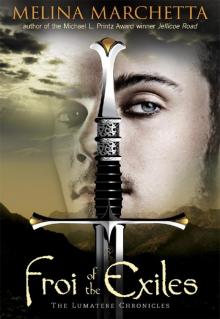 Froi of the Exiles
Froi of the Exiles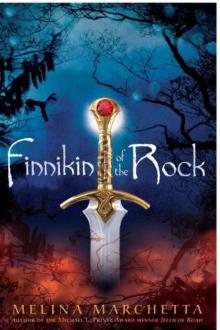 Finnikin of the Rock
Finnikin of the Rock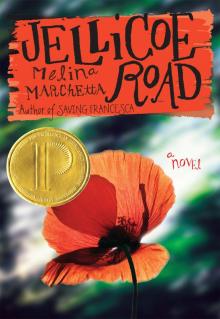 On the Jellicoe Road
On the Jellicoe Road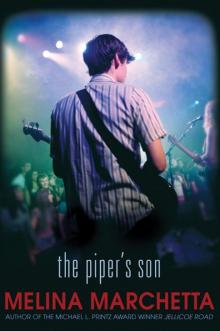 The Piper's Son
The Piper's Son The Place on Dalhousie
The Place on Dalhousie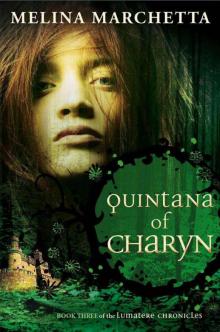 Quintana of Charyn
Quintana of Charyn The Lumatere Chronicles: The Complete Trilogy
The Lumatere Chronicles: The Complete Trilogy What Zola Did on Tuesday
What Zola Did on Tuesday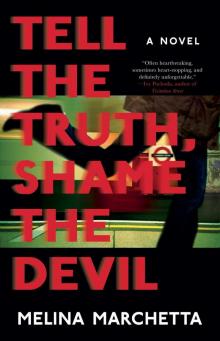 Tell the Truth, Shame the Devil
Tell the Truth, Shame the Devil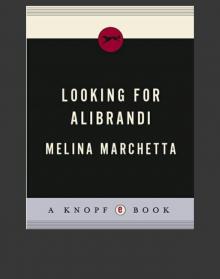 Looking for Alibrandi
Looking for Alibrandi What Zola Did on Monday
What Zola Did on Monday Froi of the Exiles lc-2
Froi of the Exiles lc-2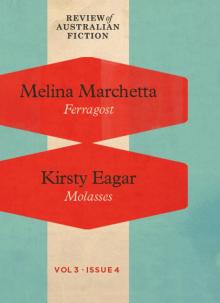 Review of Australian Fiction, Volume 3, Issue 4
Review of Australian Fiction, Volume 3, Issue 4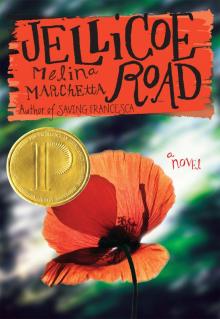 Jellicoe Road
Jellicoe Road Froi of the Exiles: The Lumatere Chronicles
Froi of the Exiles: The Lumatere Chronicles Quintana of Charyn lc-3
Quintana of Charyn lc-3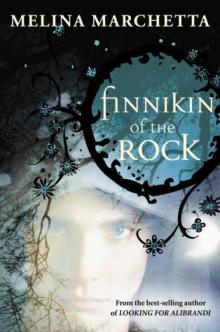 Finnikin of the Rock lc-1
Finnikin of the Rock lc-1 The Lumatere Chronicles
The Lumatere Chronicles